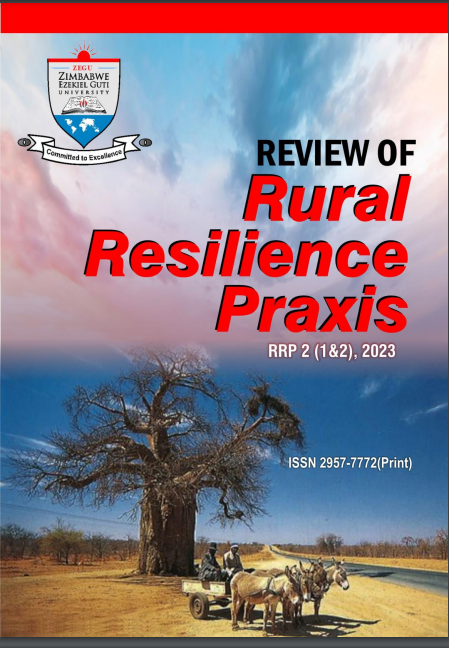Rural towns in Zimbabwe urbanisation without growth and implications for sustainability
DOI:
https://doi.org/10.71458/aq7wts96Keywords:
Infrastructure and Investment, Rural-urban relationships, Urban dynamics, Economic downfall, sub-Saharan AfricanAbstract
Many towns in sub-Saharan rural terrain are struggling with accelerated urbanisation because of the country’s’ present economic downfall prompting an investigation of difficulties and sustainability implications associated with excessive and unsustainable urbanisation trajectories. It underscores that urbanisation without economic growth is the primary challenge in rural towns. To provide a thorough analysis, the study employed a mixed method approach in data collection. Quantitative data collection in this study encompasses the use of surveys and statistical analysis to measure changes in infrastructure, economic indicators, and demographic trends. Recommendations advocate integrated, contextspecific development methods with a focus on community engagement, local economic promotion and infrastructure investment. Sustainable urban planning should be given top priority in policy interventions, considering social, economic and environmental factors. Collaboration between government, communities, and stakeholders is needed for effective implementation, fostering sustainable growth and improving well-being in rural Zimbabwean towns amid urbanisation challenges. The adaptation and resilience demonstrated by small rural towns in Zimbabwe suggest the possibility of sustainable development in rural places experiencing dynamic change, despite the obvious obstacles. For inclusive and sustainable growth, the study recommends that there should be improving infrastructure and service delivery in rural towns.




